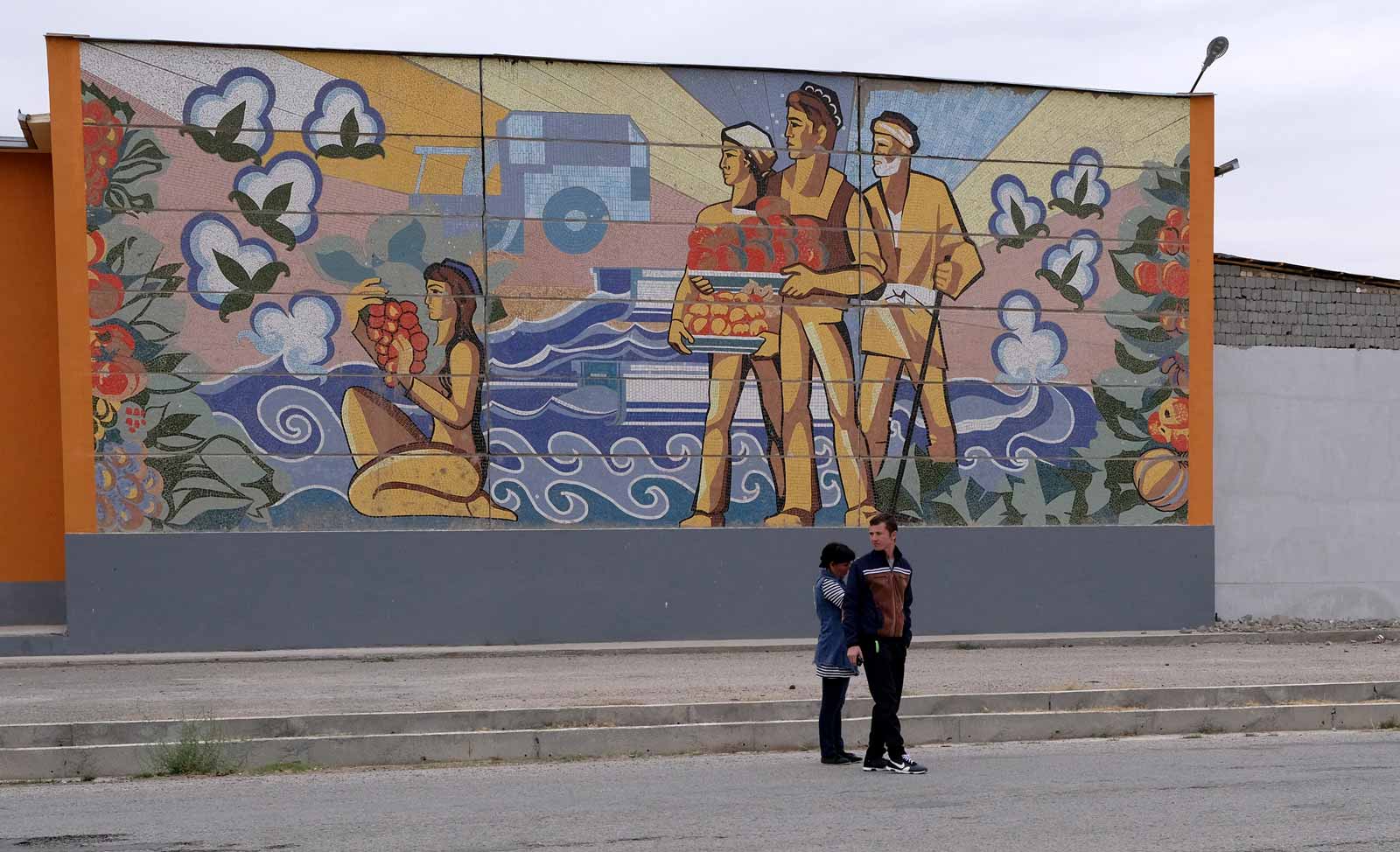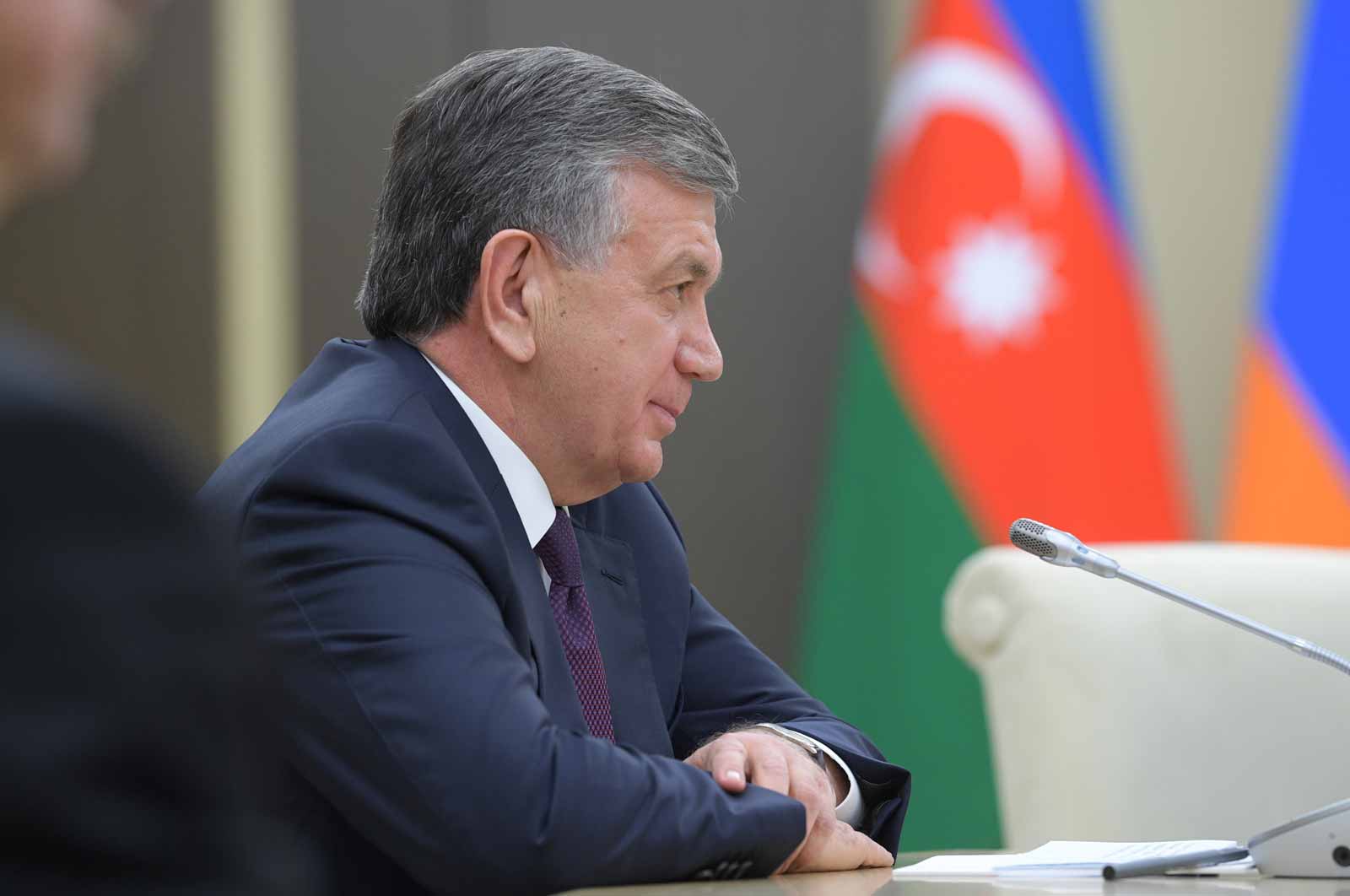After spending decades as a pariah state, feared or at best ignored by even its near neighbors because of its reputation as one of the most repressive and closed nations in the world, Uzbekistan is slowly emerging from the shadows. Along with other Central Asian countries, Uzbekistan is worried about the expansion of the Taliban and ISIS into Afghanistan—and, under a new president, is for the first time taking the lead on making peace in the region.
Tashkent’s self-imposed international isolation ended this week when it hosted a major peace conference on Afghanistan at the end of March. The meeting, which takes place today, brings together the foreign ministers of India, Pakistan, Iran, Turkey, Russia, Afghanistan, all four Central Asian Republics, and the UN, as well as representatives from the US and EU.
Tashkent also invited the Taliban to attend, but it is unlikely that its representatives will do so. Afghan President Ashraf Ghani had offered the Taliban recognition and unconditional peace talks in February, but the group did not respond to that offer either—so far. Instead, on March 20, the Taliban offered to discuss peace conditions with Afghan jihadist groups that were opposed to the US forces’ presence in Afghanistan. These militants would include former mujahedin leaders who fought the Soviets back in the 1980s. It is unlikely, however, that the Afghan government or the US would agree to such an arrangement.
Uzbekistan’s initiative comes at a time of worsening security in the entire region. Senior Uzbek officials at a recent conference told me that they are deeply concerned by the presence of several thousand Islamic State and Taliban fighters in northern and eastern Afghanistan, not far from its border with several Central Asian countries.
US intelligence reports cite more than twenty terrorist groups now active in Afghanistan and Pakistan, many of them originally from Central Asia. Groups such as the Islamic Movement of Uzbekistan are allied with ISIS, yet also fight for the Taliban. The US is deploying up to 1,000 more Special Forces and trainers to help the Afghan army, bringing total US-NATO strength to an estimated 15,000 troops.
NATO officials have long confirmed that there are hundreds of Uzbek and Tajik fighters in Syria, Yemen, Afghanistan, and Pakistan, and many of them are now returning home to their countries of origin. Together with ISIS and the Taliban, these fighters are trying to create bases in northern Afghanistan and infiltrate back into Central Asia. In early March, ISIS released a video in which its fighters boasted of establishing a “caliphate” in northern Afghanistan. Another ISIS and Taliban goal is to capture Kunduz, a city on the Uzbek border that fell to insurgents last year but has since been recaptured by Afghan Army forces.
The threat to Central Asia comes just as Uzbekistan, with a population of 34 million and a powerful army that make it the largest and most influential state in the region, is for the first time attempting to open up its closed political and economic systems, under a new and unusual president. President Shavkat Mirziyoyev served for thirteen years as the country’s prime minister under the ruthless dictator-for-life President Islam Karimov, who died in 2016 after ruling the country for over twenty-seven years.
Everyone expected Mirziyoyev to continue the same repressive regime as his predecessor, but instead, he has surprised even his own countrymen. Under Karimov, the jails were packed with an estimated 10,000 political prisoners, and international humanitarian organizations were banned from visiting the country for years. Last year, though, a thaw became apparent when long-time political prisoners and journalists in detention began to be released from jail. This included one of the world’s longest-serving political prisoners, the journalist Muhammad Bekjanov, who was freed after eighteen years of hard labor. Releasing prisoners was possible only after Mirziyoyev dismissed his much-feared rival and powerful head of the secret police, Rustam Inoyatov. Since then, Mirziyoyev has removed other high-ranking officials, replacing them with political allies.
Other major measures are underway. Under Mirziyoyev, the abhorrent use of forced child labor to harvest the cotton crop has ended; his government is gradually implementing economic reforms; removing restrictions on foreign currency; encouraging more religious freedom; and the state control of TV is becoming more relaxed. These efforts are part of a bid to attract foreign investment that has largely steered clear of the country because of its repressive character. But they are also having an impact on other repressive states in the region, including Turkmenistan and Tajikistan, which have used Uzbekistan’s formerly harsh regime as an excuse to maintain their own draconian policies. With new investment, Uzbekistan’s development of its oil and gas fields could soon make it as rich as some of its neighbors.
Advertisement
After years of maintaining an aggressive posture toward its neighbors, Uzbekistan is using this week’s conference to project its image as a more friendly and responsible state. Already, Mirziyoyev has visited all the countries in the immediate region, promising to work with them closely. In March, he traveled to Tajikistan and pledged to scrap an unpopular visa system that prevented family visits on both sides. Uzbek officials have also stopped haranguing Kyrgyzstan for its political liberalism. All the Central Asian states have excessive apparatuses of centralized control and repression and are effectively still police states—with the exception of Kyrgyzstan, which has a parliamentary form of government and is the most democratic country in the region. Uzbekistan, by comparison, has a long road to reform. Only two dozen political prisoners have so far been released, and thousands of Uzbeks remain on a security blacklist as potential enemies of the state. The secret police and judiciary need a complete overhaul, and the press remains fully under state control. The country has never held a free and fair election.
In the meantime, the main concern of all the states of Central Asia is the security threat from militants and insurgents. The US, China, and Russia all have training programs for elite military units in all the countries in the region; and these programs seem able to co-exist without conflict. Western governments appear to share the same mutual interest in suppressing this security threat.
Its neighbors all need a reliable, engaged Uzbekistan to help them combat extremism. If Uzbekistan proves able to truly reform itself, then it could become a leader by example for other states in the region. The talks in Tashkent are putting Uzbekistan, temporarily at least, center-stage in the region. But it will take time and more tangible evidence of progressive change for Uzbekistan to be taken seriously as a potential peace-broker by the Taliban, the Afghan government, and the United States.



